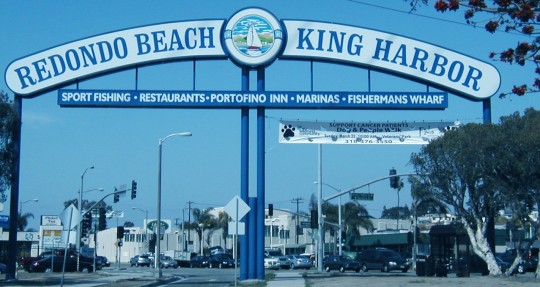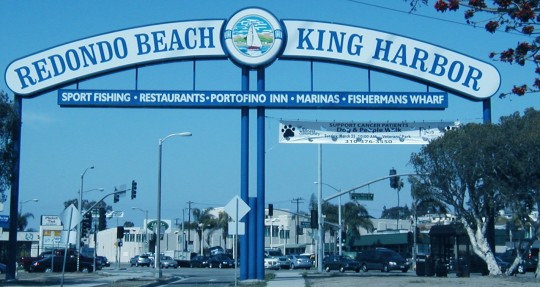Link
6 notes
·
View notes
Link
0 notes
Link
0 notes
Text
What does the hospitality sector's future hold?
The hospitality sector is one that is expanding quickly. There are many different elements influencing this growth. The demand for hotel rooms is rising among the younger population. In order to blend business and pleasure, older people are also looking for resort lodging in greater numbers. Because of these patterns, there is a ton of room for improvement.
Despite the current global economic crisis, there are signs of recovery in the hospitality sector. In comparison to pre-pandemic levels, revenues are up 2%. But people who work in the hospitality industry find it hard to meet rising customer needs and fill open positions.But people who work in the hospitality industry find it hard to meet rising customer needs and fill open positions.Even though the future is uncertain, there Even though the future is uncertain, there are several job options in business. There are many educational institutes that offer hospitality courses for those who desire to work in this field.
The hotel sector is changing significantly as a result of technology. The marketing of hotels is increasingly reliant on social media. Integrated payment solutions are now being made so that the process is easier and faster for visitors.Integrated payment solutions are now being made so that the process is easier and faster for visitors.These options, which are built into property management systems, get rid of the need for big hardware and make it possible to do business without using paper. These options, which are built into property management systems, get rid of the need for big hardware and make it possible to do business without using paper.
The hospitality sector must seriously address the issue of sustainability. Global awareness of environmental issues and ethical corporate practices has expanded as a result of the pandemic. To keep up with this trend, hoteliers must cooperate with one another. Leading businesses have takentaken measures to reduce their carbon footprint as part of their operations, in accordance with international governmental initiatives. Additionally, they promote sensible consumption. For instance, Radisson has pledged to achieve "net zero" status by 2050.
AI will assist business owners in providing individualized and customized experiences. By automating repetitive processes, hoteliers will also be able to save the time of their workers. Additionally, it will allow workers to concentrate on higher-value jobs. With the expansion of the sector, AI will continue to advance in sophistication. Businesses who make an early investment in this technology will remain one step ahead of their rivals.
The hotel sector is already changing as a result of automated operations. AutomationAutomation is becoming increasingly necessary, and it aids in a company's ability to weather the ups and downs of the hospitality sector. The management of hotel operations is changing as a result of chatbots and AI, which have emerged as popular themes in debates on digital transformation. They will also assist guests with hotel check-in and check-out. Automation will ultimately increase the efficiency of the hospitality sector. The future of hospitality will be more promising than ever thanks to these innovations.
Despite being a consistent and stable sector for a long time, hospitality is becoming more and more competitive. The hospitality business is departing from the established model as more customers desire new experiences. The emphasis will be on the guest experience, even if classic aspects will still be there. there. Most of the benefits Most of the benefits from the changes will go to those who take the initiative and adapt.
As competition increases, hotels hotels As competition increases, hotel owners must maintain a fantastic customer experience. This calls for more ingenuity and creativity on the part of hotel owners and management. Upstarts will be better able to compete with major hotel chains as technology continues to drive competition. The promotion and work schedules of hotel employees must also be planned more quickly by hotel owners and management.
The hotel sector is also changing as a result of smartphone-based services and increased social media participation. Some hotels let visitors use their iPhones as room keys, while others allowallow them to use a few swipes to change the lighting, temperature, and television stations. Social media and information technology are essential to the future of hospitality.
The strong brand of Airbnb is forcing hoteliers to reconsider how they conduct business. Hoteliers can better adapt their sales strategy and broaden their reach by collaborating with other businesses. This will increase their revenue and make them more lucrative. The variety of the workforce is also advantageous to the hotel sector.
The hospitality sector depends heavily on technology and artificial intelligence. Without them, hotels frequently wouldn't exist. Everything from accommodation pricing to assisting visitors online and through room service uses artificial intelligence. Additionally, transportation technology is developing. There are many different kinds of apps for mobile devices, and voice-activated search engines are becoming more common.There are many different kinds of apps for mobile devices, and voice-activated search engines are becoming more common.With all this technology, it's easier to remember what customers like and make their stay more unique. With all this technology, it's easier to remember what customers like and make their stay more unique.
0 notes
Link
0 notes
Link
0 notes
Text
Considered an Authority in Every Aspect of Hospitality
Stephen Mooney suggested that, you need a few traits that suit the work in order to become an expert in all facets of hospitality. The ability to communicate effectively is one of the most crucial traits. When working with clients and speaking to influential individuals, effective communication skills are essential. They'll help you stay on course and avert missteps. Additionally, having effective communication skills can help you establish a good reputation in your field.
The hotel industry is quite diversified. Numerous professions in this sector need years of diversified industrial expertise. For instance, managing the insider information of famous guests involves expertise in hotel management. As a result, the sector places a high value on secrecy and accountability. Professionals in the hospitality industry need to be empathetic, fair-minded, and able to interact with a wide range of individuals from all countries and backgrounds.
Communication skills are stressed in hospitality occupations in addition to customer service abilities. Any role in this sector, from front desk representatives to restaurant servers to bartenders to waiters, requires effective communication. Additionally, these jobs teach workers how to spot customers' needs and speak to them persuasively. With a great company, experience in the hospitality industry may help you progress your career. Gaining the requisite experience is crucial if you want to thrive in the rapidly expanding industry of hospitality.
A Bachelor's degree in the sector may be great if you are passionate about it and want to earn a livelihood doing it. With this degree, you'll have the extensive education and real-world experience necessary to work in the hospitality sector in a variety of positions. You can apply for jobs in a casino, hotel, restaurant, or other hospitality-related establishments. You can prepare for specialized sectors of the hotel business with a bachelor's degree. You can advance into managerial positions as you gain more comprehensive knowledge and abilities.
According to Stephen Mooney, practical training programs seek to prepare students for the workforce. These programs emphasize the value of experiential learning. Students benefit from their smooth professional development. Additionally, the book includes perspectives from industry companies and students. They are encouraged to offer their opinions and experiences in the book's concluding part. You'll receive a behind-the-scenes look at how training programs for the hospitality industry operate throughout the book. It is clear why a hands-on training course is crucial for anyone working in the hospitality industry.
Although there has been a substantial amount of restructuring in the business recently, it is swiftly recovering. Even if the world economy is currently having trouble, people still want to travel, have adventures, and use services. A certification can open the door to a lucrative job, and ongoing education can provide coworkers and colleagues an advantage over their contemporaries. The following alternatives are available for earning a certificate. Continue reading to find out more about the advantages of becoming certified in all facets of hospitality.
For various hospitality positions, the American Hotel & Lodging Educational Institute offers a wide variety of certificates. These include event planning, food and beverage management, hotel management, and catering. Anyone who wishes to increase their knowledge in these subjects is welcome to enroll in these programs. Even certifications in a number of subjects are offered by some schools. By obtaining one of these credentials, you may set yourself apart from your rivals in the hospitality sector. You may start your journey toward a higher-paying position in the hotel sector by obtaining this qualification.
Any profession in the hospitality industry requires the employee to have excellent communication skills. Every day, you will communicate with clients, coworkers, and managers. Making the customer's stay as pleasurable as you can is your aim, along with assisting the team in providing excellent service. To further encourage cooperation and client pleasure, you must work together as a team. Here are five suggestions for effective communication in the hospitality industry.
Stephen Mooney pointed out that, an excellent advantage in the hospitality industry is keen attention to detail. Finding invoicing mistakes and ingredient expiration dates will be simpler if you have a sharp eye for minor details. It will be simpler to build relationships with consumers and deliver a satisfying experience if you have an eye for details. A customer's experience may be made or broken by the slightest elements. Include these data prominently in your CV!
0 notes
Text
Animal Welfare Issues and Topics are Critical
Animal welfare reasons should be high on the list of social justice issues, given the human costs of exploitation. Because markets only consider the desires of a limited segment of society, they fail to distribute resources efficiently. As a result, because producers cannot charge consumers for their advantages, they have little motivation to enhance animal welfare. As a result, animal welfare concerns should be high on the priority list. Despite the moral and financial justifications, many people are still hesitant to donate to animal protection organizations.
According to Stephen Mooney, several charitable groups have increased their efforts to enhance animal welfare. In Australia, for example, wildfires destroyed a lot of property and residences. Furthermore, about three billion animals perished as a result. While this is a tragic event, it has caused us to reconsider animal welfare issues and how we should respond. The humane treatment of animals is essential, and the charitable sector should consider this when evaluating animal welfare issues.
Furthermore, as human affluence grows, so does demand for animal care, resulting in a contradiction between production and consumption. As a result, increased demand for animal welfare would boost production costs, resulting in larger economic burdens. This begs the question of who should bear this burden: consumers or producers. Because the customer may not be prepared to endure this burden, animal supporters must seek political remedies to the fundamental problem.
Animals are seen differently in various civilizations. Different opinions are influenced by factors such as religion, general education level, and economic background. Animal welfare science, on the other hand, has demonstrated its importance in improving animal husbandry across the world. It's no surprise that the problem of animal welfare has gained worldwide relevance as more people become aware of it. Animal scientists will have to alter their beliefs and study in the future to comply with these new laws. There is no uniform animal welfare standard, and laws for different types of farm animals vary greatly.
Stephen Mooney described that, western cultures are responsible for the most well-known and impactful animal care concerns. They are Western-influenced and advocate for Western-style animal welfare management. Because these ideas may clash with cultural norms, there is no general consensus on pig welfare. However, promoting humane conduct toward animals and making a difference in animal welfare is a shared objective of animal welfare. The authors of this paper argue for global animal welfare standards and practices to be harmonized.
The notion of animal rights arose through democratic debate and the contestation of conflicting claims. It is impossible to apply it to animals' life since they do not have these rights. Regardless, the idea of animal rights is essentially paternalistic. Animal welfare advocates should not encourage the usage of such items. These items are both socially and environmentally useless. Animal rights activists, on the other hand, should not abandon their own way of life or personal values.
Transport stress may have a major influence on animal wellbeing in some instances. While moving animals is an essential component of the meat production process, the stress and pain the animals experience can have an impact on the quality of the meat. After transit, some pigs become pallid, exudative, and dry. Furthermore, transport animal losses include both those that die on arrival and those that are unable to walk. Injured or non-walking pigs fall under this group.
In addition to Stephen Mooney the simulated instance demonstrates that the animal welfare act and 1993 Additional Directives have a significant influence on pork output. The controlled environment includes the use of growth stimulants, the size of sows in the nursery, and the prohibition of growth hormones. The combined effect of these actions would result in modest increases in overall production and domestic pork pricing. However, pork prices would rise due to the high expenditures of animal welfare.
Consumer surveys on willingness to pay for animal welfare frequently underestimate consumer behavior. Despite the fact that animal welfare influences customers' willingness to pay extra for particular types of food, such as organic or non-GMO, the findings are not always reflective of market trends. The outcomes of animal welfare surveys frequently reflect political economy conduct rather than human ethical behavior. Those that value movable abattoirs and air-partitioning, for example, are ready to pay extra. Consumers, on the other hand, may be less enthusiastic about ending castration.
0 notes
Link
0 notes





